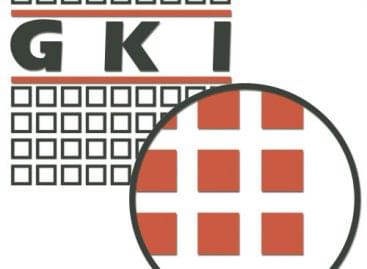Tax exemption costs billions – can the budget handle it?
The extended personal income tax exemption for mothers with two and three children may help families in the short term, but in the longer term it poses serious risks to the Hungarian budget, according to a recent analysis by the Hungarian Institute of Economic Research (GKI).
 The 2025 budget year has not even begun, but it is already clear that the tax benefit for mothers could put a serious dent in the state budget. According to the GKI Economic Researcher, the personal income tax exemption for mothers with two and three children and the doubled family tax benefits will reduce budget revenues by HUF 655 billion in 2026. Moreover, this amount will grow year by year: by 2029, the impact could reach HUF 1,000 billion, unless there is a significant economic recovery.
The 2025 budget year has not even begun, but it is already clear that the tax benefit for mothers could put a serious dent in the state budget. According to the GKI Economic Researcher, the personal income tax exemption for mothers with two and three children and the doubled family tax benefits will reduce budget revenues by HUF 655 billion in 2026. Moreover, this amount will grow year by year: by 2029, the impact could reach HUF 1,000 billion, unless there is a significant economic recovery.
The program will be implemented gradually. Mothers with two children will receive the personal income tax exemption in four waves depending on their age, while their tax benefit will also double to HUF 40,000 per month. Mothers with three children will be eligible for tax exemption and an increased tax benefit regardless of age from October 1, 2024. The subsidies will partially increase consumption – thereby generating VAT revenue – but this will not compensate for the tax loss.
According to the GKI forecast, the program alone could increase the budget deficit expected at that time by 15% by 2026. State forecasts expect a deficit of 3.6%, while the EU forecasts 4.1%. In order to ensure a budget balance, the government would have to either reduce spending or find new sources of revenue – in comparison, the tax reduction program points in the opposite direction.
From a social perspective, the fairness of the program is also controversial. The benefits focus on mothers raising children, but single fathers do not receive similar support, even if they fulfill the same parental role. It is also questionable whether the additional support really encourages having children or rather strengthens existing income differences.
The GKI analysis highlights that while tax exemptions can improve the financial situation of families in the short term and stimulate consumption, they threaten budgetary sustainability in the long term. According to experts, there will only be sufficient resources to maintain the benefits if the Hungarian economy grows substantially – but the chances of this are currently surrounded by a lot of uncertainty.
Related news
Restaurant representation: tax exemption is coming, pálinka is also included in the circle
🎧 Hallgasd a cikket: Lejátszás Szünet Folytatás Leállítás Nyelv: Auto…
Read more >Related news
Davos 2026: the risk premium has appeared on store shelves
🎧 Hallgasd a cikket: Lejátszás Szünet Folytatás Leállítás Nyelv: Auto…
Read more >SIRHA Budapest 2026 – The biggest domestic celebration of the HoReCa sector
🎧 Hallgasd a cikket: Lejátszás Szünet Folytatás Leállítás Nyelv: Auto…
Read more >Fewer employers plan to raise wages this year than last year
🎧 Hallgasd a cikket: Lejátszás Szünet Folytatás Leállítás Nyelv: Auto…
Read more >









